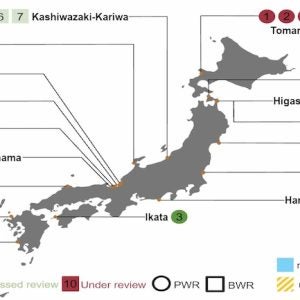Anomaly detection and IoT in the Philippines
TEPCO Fuel & Power (TEPCO FP) and Mitsubishi Hitachi Power Systems (MHPS) have begun providing a digital O&M service for the Pagbilao coal-fired power station, operated by TeaM Energy Corporation in the Philippines.
TEPCO FP and MHPS have been working towards commercialisation of what they call operations and maintenance “solutions services” for power plants since concluding a basic business partnership agreement aimed at enhancing the efficiency of coal- fired power plants, in September 2016.
In April 2017, TEPCO FP and MHPS installed their jointly developed anomaly detection model at the Pagbilao power station. The system shares information over an IoT (Internet of Things) platform, enabling early detection of anomalies in plant equipment. The initiative went well and led to a first contract.
The Predictive Anomaly Detection system is proving reliable and is expected to improve plant availability and lower O&M costs at the Pagbilao power station.
Pagbilao, which consists of two 367.5 MW units, is located in Quezon Province, in the south of Luzon Island, entered commercial operation in 1996.
TeaM Energy Corporation is a joint venture of Marubeni Corporation and JERA. The O&M Solutions Service collaboration aims to build on TEPCO FP’s expertise in O&M and MHPS experience in power plant design, manufacturing, construction, and services.
The two companies are working towards the joint development of a comprehensive O&M business targeting coal-fired power plants in southeast Asia, where they hope to utilise their respective business strengths.
IoT based O&M in Myanmar
Kansai Electric Power and MHPS have concluded an agreement to undertake a preparatory survey looking at the potential for improved power plant maintenance using state-of-the-art technologies such as IoT and AI in Myanmar. The work was contracted to the two companies by the Japan International Co-operation Agency (JICA).
Increasing Myanmar’s power generation capacity is an urgent issue today as this southeast Asian nation’s maximum power demand is currently projected to expand to 4000 MW in 2020 and 14 000 MW in 2030, in tandem with economic growth. Existing power plants that were impacted primarily by previous economic sanctions suffer today from shortages of equipment and parts that are necessary for carrying out needed repairs, with the result that “proper O&M has not been carried out.” Development of the people to take on such duties is also lagging.
In the light of this, the Japanese government has drawn up plans to provide economic support to Myanmar and has declared its intent to co-operate in energy. Against this backdrop, JICA openly invited bids to undertake an investigation into the current status of O&M at Myanmar’s existing power plants and to explore the feasibility of introducing IoT, AI and other state-of-the-art technologies deveoped by small and medium sized enterprises in Japan. Kansai Electric and MHPS responded to this call as a team and were selected to carry out the work.
The investigation will be conducted over one year, starting in July 2018 and finishing in July 2019. Both companies will dispatch employees to the power plant sites, their objectives being to survey Myanmar’s existing power plants and prepare technical proposals based on their O&M requirements.
Kansai Electric presently offers an engineering service for fossil fired power plants known as “Kansai-Value Creation Service,” or K-VaCS. This aims to “create customer value” throughout all phases of fossil fired power plant projects, from basic planning to O&M once in operation. Kansai says it is “now working closely with small and medium enterprises having outstanding technologies, to jointly develop new products and services that will boost added value through integration of these currently disparate technologies.”
One MHPS offering of relevance here is MHPS-TOMONI – which the company describes as “a digital solution service that supports optimisation of the operation of thermal power plants.”
Optimising co-firing at Soma, Japan
A recent application of MHPS-TOMONI was at Soma Energy Park, a 112 MWe pulverised coal and biomass co-firing power plant in Soma-shi, Fukushima Prefecture, Japan, providing what MHPS calls “advanced operations and maintenance” for the plant. It also includes advanced control concepts to achieve stable operations and improved operability with a wide range of fuels, while expanding “data collection and development of analysis methods aimed at future autonomous operation.”
MHPS supplied the coal–biomass mixed- combustion boiler for Soma, the steam turbine, flue gas desulphurisation system, and selective catalytic reduction deNOx systems. Construction was completed in March 2018. During commissioning a biomass share of 34% was achieved at rated load, the highest yet reported for a 100 MW class coal plant in Japan.






